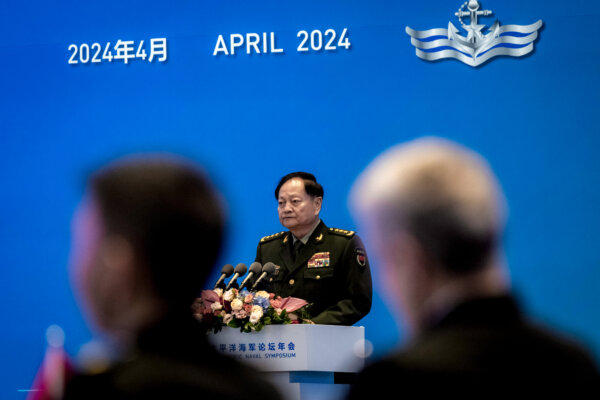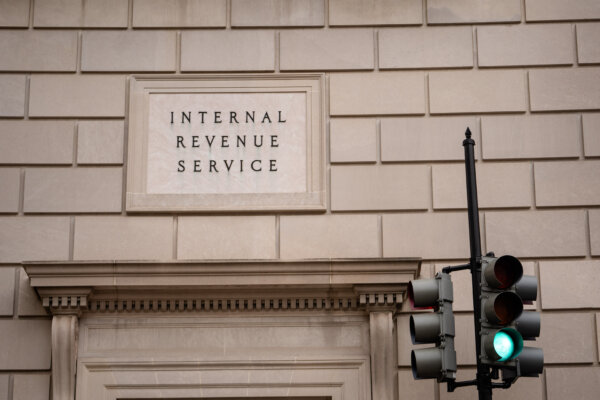![]() At the recently concluded Fourth Plenary Session, Chinese leader Xi Jinping retained all of his official titles—an outcome that surprised many China observers.
At the recently concluded Fourth Plenary Session, Chinese leader Xi Jinping retained all of his official titles—an outcome that surprised many China observers.
Why was he able to do so, despite signs that his grip on the military has significantly weakened?
I believe Cai Xia, a Chinese dissident and former professor at the Central Party School, offers a compelling explanation.
Cai’s Analysis of the Struggle
In the days leading up to the plenum, the Chinese military abruptly expelled nine top generals from the Party. Among them were He Weidong, who served as vice chairman of the Central Military Commission (CMC), and Miao Hua, the CMC’s political commissar.
Cai believes that this was a preemptive political strike launched by Zhang Youxia, first-ranking vice chairman of the CMC, against Xi’s faction.
During the plenum, Zhang Youxia’s protégé, Zhang Shengmin, was promoted to vice chairman of the CMC but failed to secure a seat on the Politburo, China’s top decision-making body. Cai interprets this as a kind of “balance of terror”—neither side can defeat the other completely, forcing them into fragile coexistence.
Then why didn’t Zhang Youxia press his advantage and move to oust Xi outright? Cai explains that Zhang is “anti-Xi, but not anti-Party.” He opposes Xi to protect his own life and position, yet he has no intention of sinking the Communist Party ship. Consequently, his actions are constrained by the Party elders.
Cai notes that Xi’s current predicament is not comparable to that of former Chinese leader Hua Guofeng, who was forced out of power. After Mao Zedong died in 1976, Hua was named his successor and, together with several senior Party figures, helped crush the Gang of Four, bringing the Cultural Revolution to an end.
However, Hua continued to adhere to Mao’s political line, particularly through his “Two Whatevers” principle — “Whatever Chairman Mao decided, we will firmly uphold; whatever he instructed, we will steadfastly follow.” This angered Deng Xiaoping, who eventually forced Hua to resign, citing his lack of political and organizational skills.
Today, Cai points out, there is no dominant elder like Deng. The current generation of Party elders is hesitant and fearful that a showdown between Xi Jinping and Zhang Youxia could destabilize the entire Party, so they are restraining both sides.
Cai explains that both Zhang Youxia, who controls the military, and the Party elders are deeply dissatisfied with Xi. Beyond personal interests, they fear that Xi’s rule has brought the CCP to the brink of collapse, and they cannot allow him to keep steering the Party toward disaster.
At the same time, however, they dare not attempt to overthrow or publicly criticize him, as doing so could also capsize the Party. Thus, both sides are trapped in a dangerous stalemate.
Why the Current Crisis Is Devastating for the CCP
In my view, this shows that today’s CCP has completely lost its ability to self-correct and overcome crises.
Throughout its history, the CCP has faced repeated crises but has always managed to survive. The greatest crisis was the Cultural Revolution, which nearly destroyed China’s economy. After Mao Zedong’s death, the Party rehabilitated victims of political persecution and initiated economic reforms, narrowly pulling through. This recovery was made possible by reform-minded and conscientious leaders such as Hu Yaobang and Zhao Ziyang. They saved the CCP because the Chinese people approved of their efforts.
Now, after more than a decade under Xi Jinping’s leadership, the CCP has plunged into an even deeper crisis. Unlike after the Cultural Revolution, however, there are no reformers left in the Party. Relatively moderate figures—such as the late former Premier Li Keqiang and Wang Yang, former chairman of the Chinese People’s Political Consultative Conference, both of whom pale in comparison to the leaders who saved the Party after the Cultural Revolution—were sidelined. Li even died under suspicious circumstances.
At the 20th Party Congress held in October 2022, Xi’s loyalists consolidated total control. The officials he trusts are self-serving opportunists interested only in power and wealth. Such people cannot drive political reform.
As for his rival factions, including Zhang Youxia and the Party elders, they share Xi’s commitment to preserving the CCP above all else.
Some officials may genuinely wish for reform, but without real power or influence, they are helpless. With no one capable of turning the tide, the CCP’s crisis has become a deadlock.
What lies ahead? Most likely, the CCP will remain trapped in fierce power struggles, exacerbating an array of crises. In that prolonged struggle, the Party will inch inexorably toward disintegration and eventual collapse.
Olivia Li contributed to this commentary.











